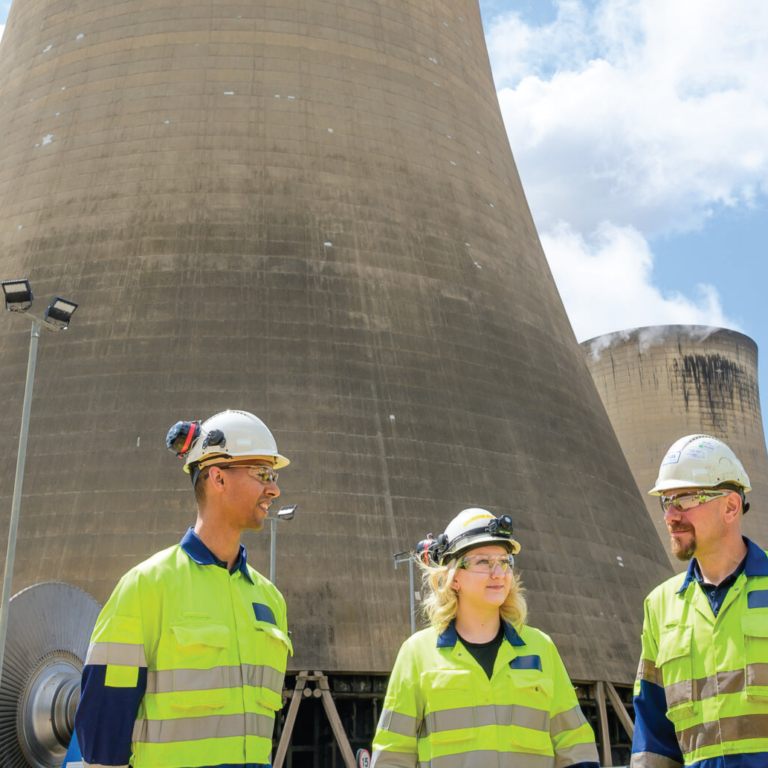-
Britain’s renewable output grew 27% last year to 96 TWh
-
92% of electricity came from coal in 1958, compared with just 7% in 2017
-
50% of power generation in 2017 came from low carbon sources
The renewable electricity produced in 2017 could have powered the whole of Britain in 1958 – the year that brought us Blue Peter, the Hula Hoop and Paddington Bear.
60 years ago, 52 million Brits used 91 TWh of electricity – all of which could have been powered by the 96 TWh of renewable electricity produced last year, according to the latest Electric Insights report, published by researchers at Imperial College London in collaboration with Drax.
The report also showed that half of Britain’s electricity come from low-carbon sources in 2017, coal and gas output fell by a tenth and wind farms posted a record year.
Carbon emissions from electricity consumption fell 12% last year, a saving which amounts to taking one in seven of Britain’s cars off the road.
Of all grid electricity supplied last year, 25% came from biomass, hydro, wind and solar. Wind generation was the major factor in helping to increase Britain’s renewable output – it produced 15% of the country’s electricity, up from 10% in 2016 and more than twice the output of coal. Wind generation grew 45% between 2016 and 2017 and higher wind speeds and the completion of several onshore and offshore wind farms contributed to record-breaking wind output over the year.
Electrical appliances, which typically make up 25% of domestic demand, were considered luxury items in 1958, when a washing machine cost around £60. This was a big outlay considering that the average salary was £569 and the average family home cost £2,253.
Dr Iain Staffell, from Imperial College London explained:
“Generation from coal continues to fall and is now the preserve of colder months as opposed to being the mainstay of generation as it was in 1958.
“60 years ago, the power system emitted 93 million tonnes of CO2; in 2017 renewables managed to produce the same amount of electricity by emitting just three million tonnes. The share of fossil fuels on the system has fallen from 80% to 50% since 2010 and the effect that shift in the balance of power is having in terms of lowering our carbon emissions is striking.”
Andy Koss, Drax Power CEO said:
“This report shows the great progress we have made in terms of decarbonising the energy sector. We can expect more days without coal on the system as we gear up to the UK coming off coal in 2025 and we are proud of the work that we have done to support this as the largest decarbonisation project in Europe.
“As the share of fossil fuels falls and more intermittent renewables come onto the system, we need to think about how we maintain stable, secure power supplies. Flexible, responsive technologies such as biomass help to support and balance the grid as more renewables come on to the system.”
Drax has upgraded half of its power station in North Yorkshire from coal to use sustainable biomass, with plans to convert a further generating unit this year. It is now the biggest single site renewable generator in the UK and the largest decarbonisation project in Europe.
ENDS
Media contacts:
Ali Lewis
Drax Group Head of News
T: 01757 612165
Jessica Gorton
Drax Group Press Officer
T: 07712 677177
Editor’s notes
Milestone moments in 1958:
- Instant noodles were available in shops for the first time
- Sputnik Satellite 1 fell from orbit and satelites 2 and 3 were launched by the Soviet Union
- Blue Peter was first broadcast on the 16th of October
- The Hula Hoop toy was created
- Paddington Bear is given his first outing in ‘A Bear Called Paddington’ by Michael Bond.
- The Beatles did their first studio recording session. They were still known as ‘The Quarrymen’
- A host of famous faces were born, including Michael Jackson, Madonna, Prince, Sharon Stone, Alec Baldwin, Jamie Lee Curtis, Kevin Bacon, Tim Burton, Andie McDowell, Michelle Pfeiffer, Peter Capaldi, Ellen DeGeneres and Kate Bush.
- The United Kingdom’s first ever motorway, the Preston Bypass, was opened (the Bypass is now part of the M6 and M55 Motorways)
- The Pizza Hut chain of restaurants was founded in Wichita, Kansas
- The European Economic Community was established
About Electric Insights
- Electric Insights Quarterly was commissioned by Drax and is delivered independently by a team of academics from Imperial College London, facilitated by the College’s consultancy company – Imperial Consultants. The report analyses raw data that are made publicly available by National Grid and Elexon, which run the electricity and balancing market respectively. Released four times a year, it will focus on supply and demand, prices, emissions, the performance of the various generation technologies and the network that connects them.
- Along with Dr Iain Staffell, the team from Imperial included Professors Richard Green and Tim Green, experts in energy economics and electrical engineering, and Dr Rob Gross who contributed expertise in energy policy. The work to date has revealed scope for further research in this area, to inform both government and organisations within the energy industry.
- The Q4 2017 report has an additional co-author: Luke Clark, Renewable UK.
- The quarterly reports are backed by an interactive website electricinsights.co.uk which provides live data from 2009 until the present.










